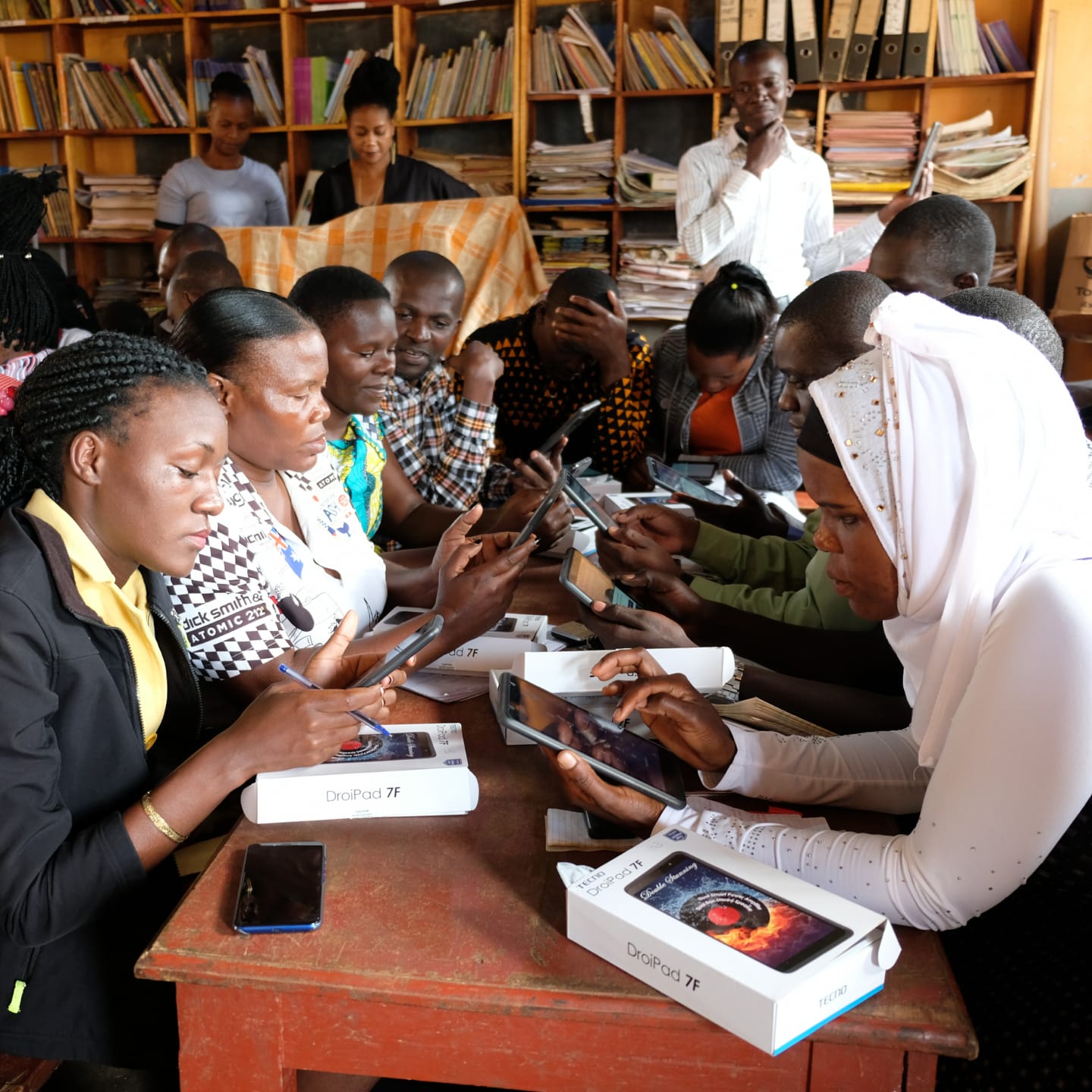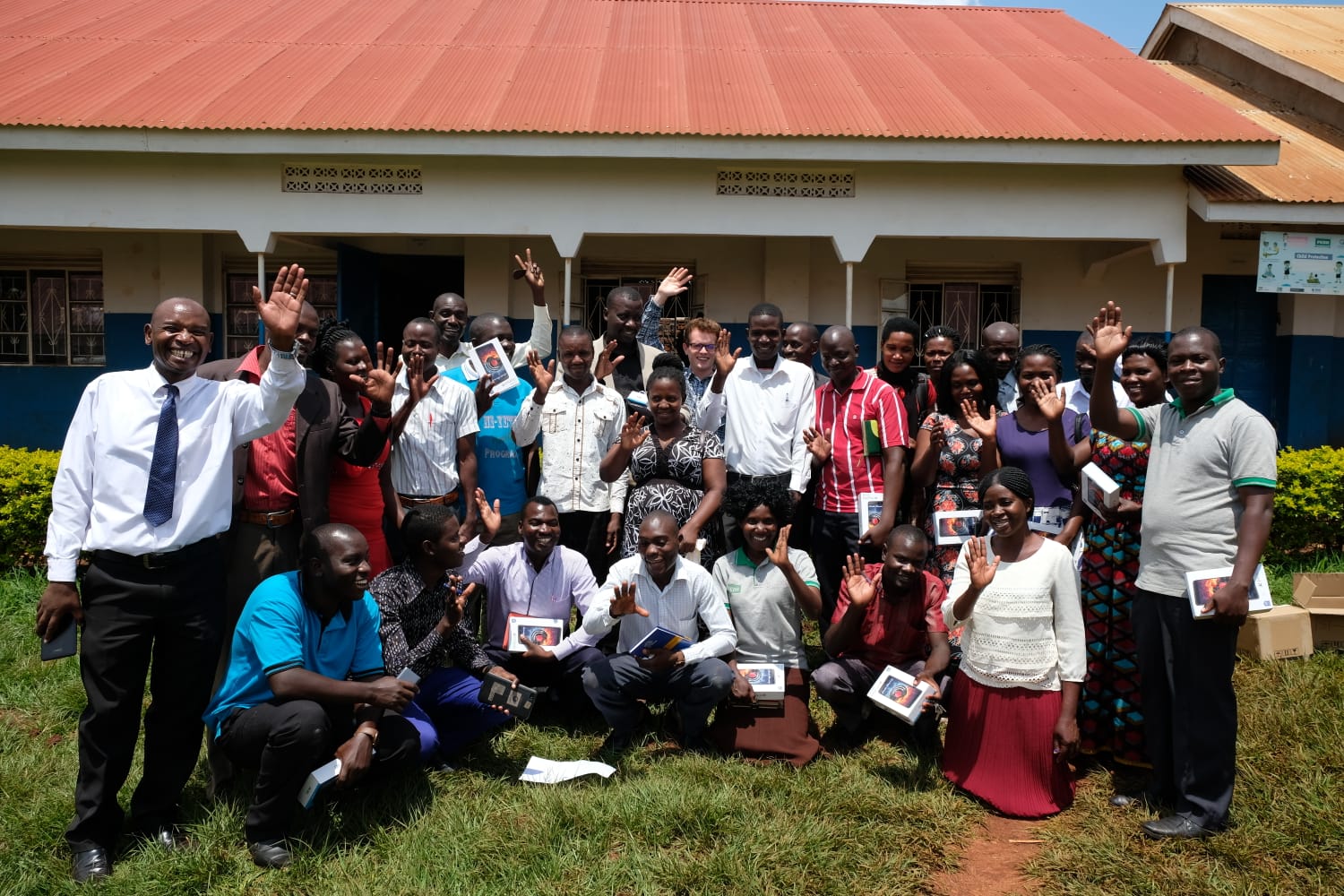Learning Journey Blog Series: Developing the right foundation for Education Technology
This is the second installation of the Learning Journey blog series co-authored by Opportunity EduFinance, Instill Education, and Chalkboard Education. We will share ongoing insights from several pilot projects testing education innovations in the affordable private school sector in sub-Saharan Africa. The series examines the evolution, learning, adaptation, and failures as we endeavour to build sector knowledge around what works and what doesn’t when developing the right digital foundations and pedagogical approach to instructional leadership and teacher professional development.
In our second learning journey we will look at the technology behind the pilot, and, in particular, the methodology employed to provide teachers and school leaders with content. We are looking to answer the following questions through this pilot:
- Can a blended learning model drive measurable results across the different contexts in which schools operate?
- Does a blended learning model drive user engagement and satisfaction?
- Are teachers incentivised to complete tasks and return to the platform as a result of strong platform/learning design?
Professor Richard Elmore of Harvard University argues that there are three things to improve learner outcomes at scale: (i) raise the level of content that students are taught, (ii) increase the knowledge and skills that teachers bring to the teaching of that content, or (iii) increase the level of students’ active learning of the content. Whilst there are multiple platforms aiming to alleviate the first issue (content quality), none have shown an impact on the critical issue of where we believe a rigorously designed, properly evaluated intervention can have the greatest impact. Quality in-service programming must extend beyond helping teachers to simply ‘manage’ the curriculum, and help them develop a deeper understanding of both subject knowledge and pedagogy. With this in mind, we have designed a blended digital and in-person training intervention that we are testing across 50 schools in Uganda.

The partner behind the platform is Chalkboard Education (CBE), a Ghanaian education technology company with a vision to transform the way digital learning content is consumed by students across Africa. Since 2015, CBE has focused on several key design principles to ensure their platform meets the core requirements of students:
- Learning flexibility: students must be able to complete content asynchronously and on any device. Critically, content must be available both online and offline to allow students to work in data and bandwidth-constrained environments;
- Task completion: content is structured to encourage completion of tasks;
- Improved performance: participants must improve understanding and performance as it relates to grades, tests, comprehension and practice;
- Improved engagement: participants engage more substantively in classroom conversation due to improved engagement with new material through the platform;
- Equity of access: participants from all backgrounds, particularly those with lower exposure to technology, are better able to engage with learning due to structured learning and explicit instructions guiding them through content;
- Data costs: ensuring data costs of using the platform are kept low both for urban and rural participants.

Instill Education, in partnership with Opportunity EduFinance, has been working with Chalkboard Education to provide content for the platform, specifically instructional leadership content as well as pedagogical and pedagogical content knowledge. Over the past three years, Instill Education has experimented extensively with mobile learning platforms as part of our blended delivery model. Our experience has led us to refine our model significantly since our first attempts, iterating based on feedback, impact data and learning from other platforms. Our journey has led us to the following key conclusions:
- Content must be bite-sized and focused on specific techniques. Our early modules were 45-60 minutes long. Completion rates were low, and teacher feedback indicated that modules were too great a burden on top of a full teaching workload. We have now condensed each module into 15-30 minutes of content.
- Content must be hyper practical. Teachers must intrinsically understand that the training they are undertaking will have an immediate impact in their classroom. We now design an emotional ‘hook’ at the start of each module, ensuring that teachers connect with why they need to learn this technique, and how it will improve their teaching. We design content that is relatable, using phase and context appropriate videos wherever possible. Crucially, offline tools such as rubrics are provided to help instructional leaders support teachers with each technique, as well as supporting other instructional leaders. Coaching and feedback are critical components of any training model, and by providing resources alongside our online material, we facilitate this process.
- Content must be ‘spaced’ for maximum impact, so teachers are able to repeatedly review content and assessments and reinforce learning so techniques are committed to long-term memory. We’ve found that whilst this technique can be applied to any skill or discipline, it is particularly useful in the context of teacher development. It allows for new knowledge and skills to be acquired effectively in short amounts of time, repeating small amounts of information in short bursts that aids in the pattern recognition and muscle memory development process. We intend to develop this concept throughout our model as we test it at greater scale.
Over the course of the pilot, we’ve been tracking the following metrics and will analysing results of the data on an ongoing basis:
- User engagement on the Chalkboard Education platform, such as logins, completion rates, time on platform;
- Change in participant comprehension, application and school-based practices in key content areas, including instructional leadership, classroom management, literacy and numeracy instruction;
- Participant satisfaction for both blended and online only sessions;
- Quality of programme content tracked by content review rubrics completed by Opportunity’s local Education Specialists, measuring relatability, practicality, modelling quality, clarity, the level at which it promotes deep thinking in participants;
- Number of professional development and observation and feedback sessions taking place in schools using the content covered in the programme;
- Quality of instruction taking place within schools measured by participating instructional leaders and external M&E specialists.
Moving forward, we will continue to rigorously test our blended learning methodology and use of technology as a means of distributing content to teachers and school leaders. Learnings from this process will be shared in future Learning Journeys as a means of documenting our development and findings.
We look forward to bringing you further updates in our Learning Journey series!
You can also read this co-authored blog on Instill's website!
Read the first Learning Jounrey Blog, introducing our pilot collaboration, here!